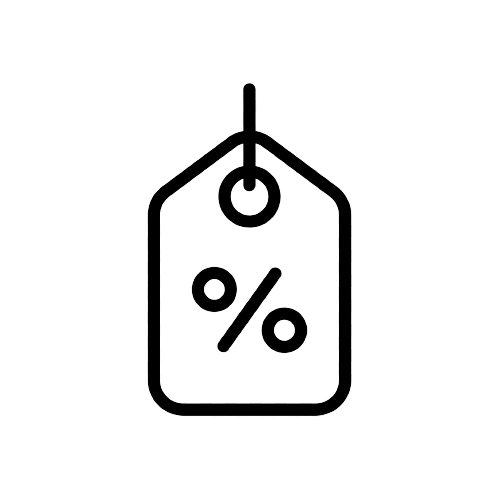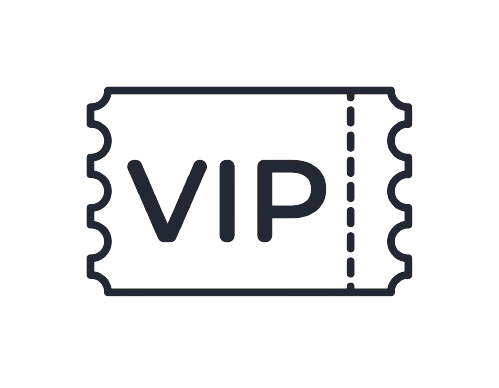All throughout Women’s History Month, we will be profiling amazing and enterprising female founders and CEOs. If you’ve read part 1 of our blog, then you’ve already met some female founders that have hopefully motivated and inspired you on your own journey.
The women highlighted in this post are not only inspiring and empowering, they are also doing incredible work in the community. Their impact is felt in the community today, but will also have a ripple effect in the years to come. We thank them for their contributions.
Also, today only you can grow your Awe collection during our Pi Day exclusive offer – 2 amulets and get 1 for free.
Get to Know: Nancey Harris of Vontélle Eyewear

Nancey Harris is the COO and co-founder of Vontélle Eyewear, an eyewear company that also provides vision care to communities in need. Vontélle’s designs are beautiful and inspired by African, Caribbean, and Latin cultures. Nancey never thought she’d be building a culturally significant eyewear empire, but her efforts have proven that the need is not only there, it is great and must be fulfilled.
Awe: Can you elaborate on why providing vision care to communities in need is so important to you?
NH: Diminishing eyesight is more prominent among African Americans than any other group. In my wildest dreams, I never thought I’d be building an eyewear empire. My story goes back to my childhood and a grand aunt who had glaucoma, which resulted in her becoming blind. I vividly remember her eyes were blue/gray and I’d often help her with chores around the house. As a result of her blindness, she was homebound unless someone accompanied her to run errands. As a kid, I felt helpless, and I never want anyone to go through this especially when it's avoidable.
Even before we even sold our first pair of glasses, we knew we wanted to create a partnership to address vision health disparities in urban communities. Vontélle partnered with WIN (Women In Need) a NYC organization with 13 shelters to provide proceeds and eyewear to women and families annually. In May 2021, we forged partnerships with optometrists willing to donate their time to provide free eye exams. We were able to donate eyewear and fill prescriptions for families in need and it is our goal to visit all of these shelters by 2023. Thereafter, we will branch out to neighboring cities and states.
Awe: You feature an element of African, Caribbean, or Latin culture in your eyewear. Why do you find that it is vital to have this cultural aesthetic represented?
NH: Vontélle was created because both co-founders lost their expensive eyewear within months of each other. After lamenting over our loss, we decided to look for two things: to buy black owned and vibrant color & patterns. We realized that all the glasses looked the same. No culture! Our culture!
Vontélle provides an opportunity to add head-turning style and flair to anyone’s wardrobe. We decided to add luxury, culture and ingenuity to classic styles. Our designs are inspired by highly identifiable African textile designs, including mud cloth and Kente cloth, Ankara prints, and newly created textile designs, which we’ve created.
Our clients have a diverse palate of eclectic styles, cultural awareness and embrace colors, textures and patterns. People who love to make a statement with their wardrobe, because Vontélle aims to turn heads and command the room. Our mission is to empower customers to, “walk confidently in this world: for every occasion.”
Awe: In what ways do you hope Vontélle continues to grow in the years ahead?
NH: Vontélle plans to be the leading eyewear and fashion brand in the very near future. We are changemakers and we intend to scale our business while offering jobs and opportunities in cities nationwide. We are excited at what the future of Vontélle holds.
Get to Know: Connie Ni Chiu and Dena Scott of and/now collective

Connie Ni Chiu and Dena Scott founded and/now collective to address racial healing and justice and to work towards healing racial trauma. And/now collective delivers trainings, workshops, and tools, coaches individuals, teams, and leaders, facilitates healing, affirmation, and connections, and designs systems for people and organizations to act for equity and justice. They are doing important work to advance racial justice while also acknowledging that racial harm and trauma is an ongoing problem we all have to actively fight against.
Awe: You are doing important work that is also heavy. How do you make sure you always have the bandwidth to keep going and not feel burnout?
Dena: This is such an important and tough question. These past two years have been particularly emotionally heavy for so many people on a personal, national, and global level. As people committed to equity, inclusion, diversity, justice and healing, the heaviness does not stop. This quote from Audre Lorde immediately comes to mind: “Caring for myself is not self-indulgence. It is self-preservation, and that is an act of political warfare." Identifying and tapping into what feeds my heart, mind and spirit is part of my self and community care. This means giving myself permission and space for joy, wonder, and peace even in the midst of pain and chaos. Lastly, knowing when to set and readjust personal and professional boundaries is also key.
Connie: Shifting from self-care to community-care has been fundamental in making this work sustainable and even joyful. And honestly, it took me a long time to make that shift. We’ve been raised to think and act individualistically rather than collectively; to compete rather than reciprocate; to move on scarcity rather than abundance — no wonder we’re all burned out! We’re living through systems and cultures of extraction rather than interdependence and rejuvenation so the question for me always comes back to spaciousness: how do we create and generate more spaciousness in our lives? For the heavy and painful moments of grief, as well as the tender and light moments of joy? We can find spaciousness in sisterhood with other women and femmes, particularly during Women’s History Month in the United States and International Women’s Day globally. But also beyond this month and day — how can we find spaciousness in belonging to communities that lift us up or hold us grounded as a way of being together? That’s the big question!
Awe: How do you help people heal racial trauma when racism is still so prevalent and aggressive in the world?
Dena: Naming this reality is huge. Giving ourselves permission to define our racial healing journey in the midst of a world that has the potential to cause ongoing harm is also huge. It’s been important to acknowledge that healing is an ongoing process with no one specific formula. It’s also been essential for us to lean on frameworks such as Healing Justice that connect healing and liberation.
Connie: It’s less so about us and more so about the community we build with others. We think of ourselves as facilitators who hold space for people to look at, touch, and be with whatever racial trauma, hurts, or harms may emerge. We focus on building and nurturing a container where people can shine a light on their shadows — individually and organizationally — and tap into their own agency, self-determination, and interdependence to define for themselves what healing and wholeness look like for them. It’s not our place to define that for people; it is our responsibility (and one that we hold sacred) to create the container and hold the space for that discovery and unraveling that often comes with healing. But it’s still an individual decision to choose to heal, and it’s an immensely difficult and painful process. We bear witness to people’s individual and collective healing journeys with gratitude and honor.
Awe: Teaching people to be anti-racist must be exhausting yet powerful. What has been one of the most rewarding experiences you’ve had yet in your work?
Dena: We are centered in putting relationships first. Every time people indicate that they have been able to form authentic connections with themselves, us, and/or with others during our work — that is the ultimate reward.
Connie: The storytelling & storysharing. The stories that people share with vulnerability and receive with immense care is beautiful to witness; it’s transformative for the space and culture where relationships are deepened and trust is built. People forget that the work of anti-racism and justice isn’t only about strategy, metrics, and PR. This is also about our hearts; the stories we carry in us about our identities, our histories, our lineages, our experiences. How we craft narratives can transform whole societies. People change because of stories. Bridges materialize because of stories. We learn to love generously because of stories. Without the sharing of stories, we wouldn’t have history — no matter how painful that history is — and we wouldn’t know where we come from and how we belong in this complex world.
Read Part 1 of our spotlight on female founders and CEOs here.













